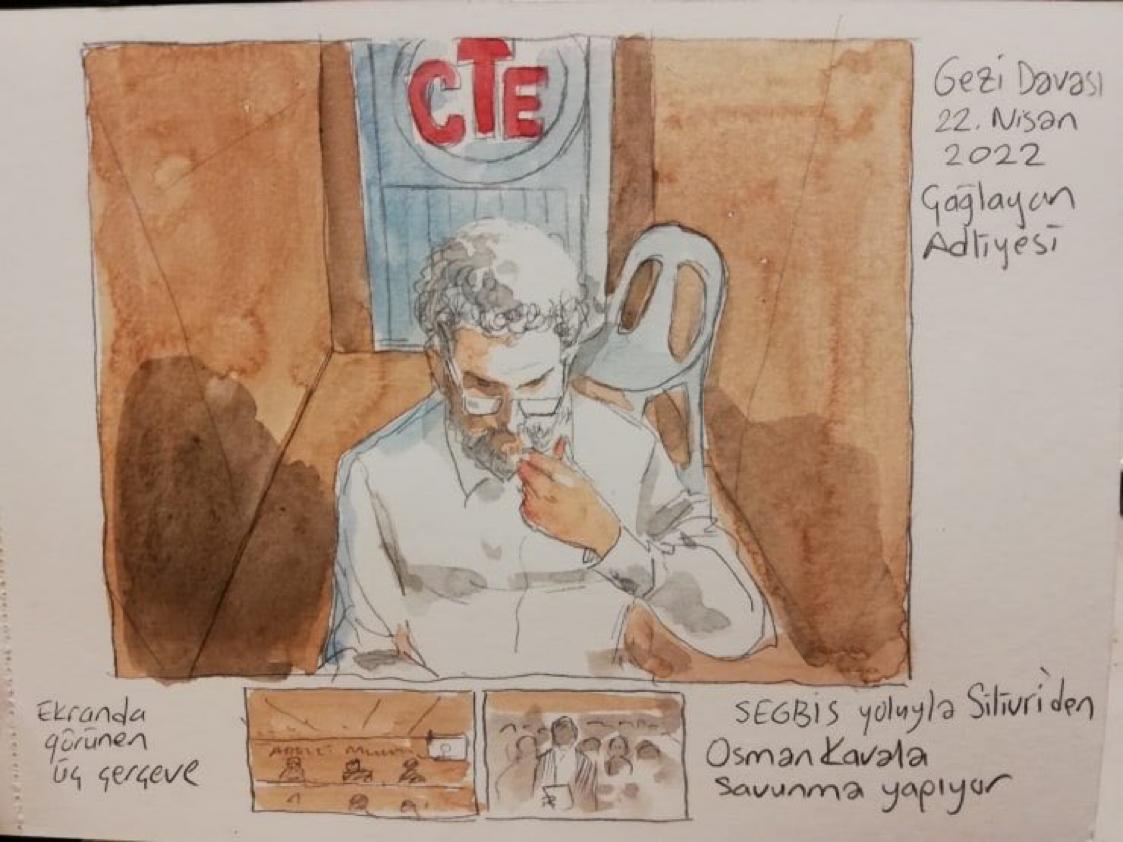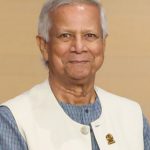An Istanbul court has sent Turkish philanthropist Osman Kavala to jail for life for allegedly trying to overthrow the government by financing protests.
The European Court of Human Rights, several western countries, and human rights groups suggest the case is politically motivated.
It is possible Turkey will be suspended from the Council of Europe’s human rights watchdog.
Protest against the conviction on April 25 has been wide ranging – from the United States, Germany, the European Parliament, Amnesty International and Human Rights Watch among others.
The USA state department said it was “deeply troubled and disappointed” by the conviction.
Kavala, 64, had been in jail for more than 4 years – without a conviction – in a series of charges that started with accusations of financing small protest demonstrations in Istanbul’s Gezi park in 2013 that snowballed into nationwide anti-government unrest and then charges of espionage and attempting to overthrow the government in connection with an alleged coup attempt in 2016.
He had been acquitted of all charges – including that of attempting to overthrow the government – until his conviction on April 25.
Firdevs Robinson, AEJ member and former BBC World Service editor specialising in Turkey and the near east, notes Kavala’s conviction as the latest in a pattern of actions by Turkey’s current government just as the international community needs Turkey as a viable mediator between Ukraine and Russia.
Another gross injustice in Turkey – Kavala given life sentence
From Firdevs Robinson 26 April 2022
When an Istanbul court handed the Turkish philanthropist Osman Kavala a life sentence without parole and jailed seven other human rights campaigners to 18 years each for trying to overthrow the government, the overwhelming reaction was an utter shock.
Expressing his disappointment over the conviction of Mr. Kavala, Tiny Kox, the President of the Parliamentary Assembly of the Council of Europe (PACE) said:
“The fact that he spent almost five years in pre-trial detention and has now been sentenced to life in prison as a result of legal proceedings that were found to be in violation of the European Convention on Human Rights, is shocking.”
Others called it “a dark day” and “a stain” on the country’s judicial history.
Outrageous, shocking and grossly unjust it might have been, but the timing and the nature of the verdicts were not altogether surprising.
For far too long now, judicial harassment and arbitrary detention of journalists, politicians and human rights defenders in Turkey have become a common practice. Along with dismantling human rights protections and silencing of domestic criticism, the authorities have proved themselves very adept at circumventing international obligations, too.
Kavala was acquitted in 2020 of charges related to financing of the 2013 Gezi protests, but hours later rearrested by another court, this time charged with attempting to overthrow the constitutional order. When he was acquitted of that charge, he was immediately detained again on an espionage charge in the same case.
Mr. Kavala’s four-and-a-half-year long imprisonment without conviction and the whole process had been described as “a show trial”, repeatedly condemned as politically motivated.
On 25 April 2022, the court acquitted Kavala of espionage but found him and seven others guilty of attempting to overthrow the government, a charge on which he was previously acquitted.
Even before the final verdict this week, Turkey was officially facing infringement proceedings over its refusal to release Mr. Kavala and not fulfilling its obligations to accept the authority of the European Court of Human Rights.
In a statement dated 2 February 2022, Osman Kavala’s attorneys said that the form of the judicial practices after the decision of acquittal issued in the Gezi Trial did not only constitute a failure to execute the judgment of the European Court of Human Rights, but also represented a series of other violations.
During his final defense, Mr Kavala said the aggravated life sentence could not be explained on any legal grounds, calling it “an assassination by the use of the judiciary.”
A life sentence without parole is the harshest sentence available to courts since the abolition of the death penalty.
The seven co-defendants, each given 18-year long jail sentences are Mücella Yapıcı, Çiğdem Mater, Hakan Altınay, Mine Özerden, Can Atalay, Tayfun Kahraman and Yiğit Ali Ekmekçi; every one of them prominent respected professionals.
Nils Muižnieks, Amnesty International’s Europe Director, called it “a travesty of justice of spectacular proportions”.
The United States and Germany were the first countries to call on Turkey to release Kavala.
The State Department said that Mr. Kavala’s unjust conviction was inconsistent with respect for human rights, fundamental freedoms, and the rule of law in Turkey.
“The people of Turkey deserve to exercise their human rights and fundamental freedoms without fear of retribution. The right to exercise freedom of expression, peaceful assembly, and association is enshrined in Turkey’s constitution and its international law obligations and OSCE commitments” it added.
Demanding Kavala be “released immediately”, German Foreign Minister Annalena Baerbock said the court’s decision was “blatantly in contradiction with the norms of the rule of law and international obligations Turkey has signed up to as a member of the Council of Europe and EU membership candidate.”
Turkey had shown time and time again how skilful it has become using tactics to circumvent the authority of the European Court of Human Rights and Council of Europe.
Now, it is testing the international community’s resolve at a time they need Turkey as a viable mediator between Ukraine and Russia.
Osman Kavala convicted
Timeline of charges against Kavala
Gezi park protest trial
Amnesty International on Kavala conviction
Human Rights Watch on Kavala conviction
New York Times on Kavala conviction








